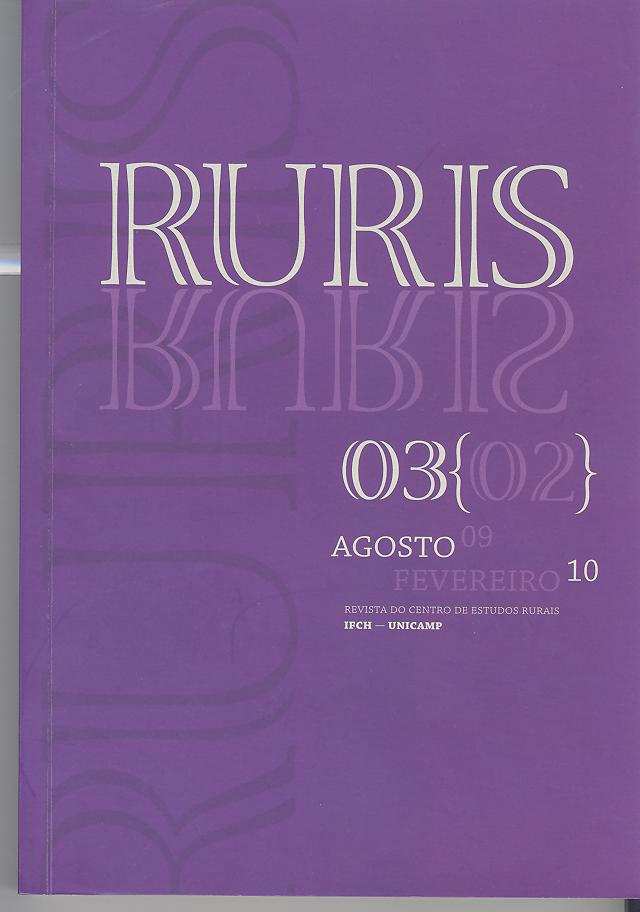Abstract
This article seeks to expose and to discuss the paradigmatic changes that Mexican anthropology experienced in its approach to Indian peoples and their members, and specifically the transformations in the theoretical corpus and discourses of anthropologists in Mexico with regard to rural world subjects. We particularly focus on the great turn experienced during the decades 1970-1980, when Gonzalo Aguirre Beltrán’s theoretical and practical corpus was replaced with the paradigms of marxism and of marginality and dependence theory, both in the academic space and in public policy. The anthropologic concept of Indian or aborigine was replaced by the economic - sociological one of rural inhabitant of depressed and isolated areas, reflecting powerfully the influence of paradigms from sociology, agricultural economics and public health that intervened in the design and application of welfare actions directed towards the indigenous people since the seventies. The Mexican Indians resigned in many cases to their ethnological condition of ethnically and culturally differentiated populations, or this condition was denied to them. They were led to assume the sociological condition of poor and isolated peasants, as a strategy of dialogue with the governmental and its welfare agencies, in order to try to recover their land or to reach benefits that were offered by the policies of social compensation. Only the zapatista rebellion, led by Mayan Indians in the Chiapas province, in the south-eastern Mexico, will manage to reposition the Mexican Indian peoples into their ethnic and cultural condition vis-à-vis the State and anthropology itself.References
AGUIRRE BELTRÁN, Gonzalo. Formas de gobierno indígena. México: Unam, 1953.
AGUIRRE BELTRÁN, Gonzalo. El proceso de aculturación y el cambio sociocultural. México: Unam, 1957.
AGUIRRE BELTRÁN, Gonzalo. Regiones de refugio. México: INI, 1965.
AGUIRRE BELTRÁN, Gonzalo. Panorama de la antropología social y aplicada. In: GAMIO MARTÍNEZ, Manuel. Arqueología e indigenismo. México:SepSetentas, 1968.
AGUIRRE BELTRÁN, Gonzalo. Formación de una teoría y una práctica indigenista. In: INI 40 años. México: INI, 1988.
BARTRA, Armando. Sobre las clases sociales en el campo mexicano. Cuadernos Agrarios, México, n. 1, 1976.
BARTRA, Roger et al. Estructura agraria y clases sociales en el campo mexicano. México: ERA, 1974.
BASSOLS, Narciso. Obras. México: FCE, 1979.
BONFIL BATALLA, Guillermo. México profundo: una civilización negada. México: SEP–Ciesas,1987.
BONFIL BATALLA, Guillermo. Obras escogidas. México: INI–Ciesas–INAH–DGCP– SRA, 1995.
CARDOSO, Fernando Henrique. Dependencia y desarrollo en América Latina: ensayo de interpretación sociológica. México: Siglo XXI, 1969.
CARDOSO DE OLIVEIRA, Roberto. O índio e o mundo dos brancos. São Paulo: Difusão Européia do Livro, 1964.
CARDOSO DE OLIVEIRA, Roberto. A sociologia do Brasil indígena. Río de Janeiro: Tempo Brasileiro, UnB, 1978.
CASO, Alfonso. Los centros coordinadores indigenistas. México: INI, 1962.
DÍAZ POLANCO, Héctor. Teoría marxista de la economía campesina. México: Juan Pablos, 1977.
DÍAZ POLANCO, Héctor. Indigenismo, etnopopulismo y marxismo. México: Línea, 1985.
ESTEVA, Gustavo. La batalla por el México rural. México: Siglo XXI, 1980.
FEDER, Ernest. Campesinistas y descampesinistas. Comercio Exterior, México, n. 2 y 12, diciembre 1977, enero 1978.
GAMIO MARTÍNEZ, Manuel. Forjando patria: pronacionalismo. México: Porrúa Hnos, 1916.
GAMIO MARTÍNEZ, Manuel. Programa de la Dirección de Estudios Arqueológicos y Etnográficos. México: Secretaría de Hacienda, 1918.
GAMIO MARTÍNEZ, Manuel. La población del Valle de Teotihuacan. México: SEP, 1922.
GAMIO MARTÍNEZ, Manuel. La investigación de los grupos indígenas mexicanos (1935). In: Arqueología e indigenismo. México: SepSetentas, 1972.
GAMIO MARTÍNEZ, Manuel. Calificación de características culturales de los grupos indígenas (1942). In: Arqueología e indigenismo. México: SepSetentas, 1972.
GAMIO MARTÍNEZ, Manuel. Nuestra estructura social, el nacionalismo y la educación (1935). In: Arqueología e indigenismo. México: SepSetentas, 1972.
GAMIO MARTÍNEZ, Manuel. Algunas consideraciones sobre niveles culturales de los grupos indios y mestizos (1940). In: Arqueología e indigenismo. México: SepSetentas, 1972.
GAMIO MARTÍNEZ, Manuel. La población del Valle de Teotihuacan. México: INI, 1979.
GONZÁLEZ CASANOVA, Pablo. La democracia en México. México: ERA, 1965.
GONZÁLEZ CASANOVA, Pablo. Democracia y Estado multiétnico en América Latina. México: Pablo González Casanova, Marcos Roitman Rosenmann (Eds.), La Jornada, 1996.
GORDILLO, Gustavo. Campesinos al asalto del cielo. México: Siglo XXI, 1988.
HEWITT DE ALCÁNTARA, Cynthia. Imágenes del campo. In: La interpretación antropológica rural. México: Colmex, 1988.
LOMBARDO TOLEDANO, Vicente. El problema del indio. México: SepSetentas, 1976.
LÓPEZ Y RIVAS, Gilberto. Nación y pueblos indios en el neoliberalismo. México: UIA, Plaza y Valdés, 1995.
LÓPEZ Y RIVAS, Gilberto. Nación y pueblos indios en el neoliberalismo, 2. ed. corregida y aumentada. México: UIA, Plaza y Valdés, 1996.
LÓPEZ Y RIVAS, Gilberto. Los retos del movimiento indígena mexicano. México: PRD/LVII Legislatura del Congreso de la Unión, 2000.
MEJÍA PIÑEROS, Ma. Consuelo; SARMIENTO, Sergio. La lucha indígena: un reto a la ortodoxia. México: Siglo XXI, 1987.
PARÉ, Luisa. El proletariado agrícola en México. México: Siglo XXI, 1977.
PARÉ, Luisa. El debate sobre el problema agrario en los setenta y ochenta. Revista Nueva Antropología, México, CONACyT–Uami, n. 39, p. 9-26, 1991.
POZAS, Ricardo de; POZAS, Isabel H. de. Los indios en las clases sociales de México. México: Siglo XXI, 1971.
PREBISCH, Raúl. Hacia una dinámica del desarrollo latinoamericano. México: FCE, 1971.
REDFIELD, Robert. Tepoztlan: a mexican village. Chicago: Chicago University Press, 1930.
SÁENZ GARZA, Moisés. Carapan: bosquejo de una experiencia. Lima: Gil S. A., 1936.
SÁENZ GARZA, Moisés. México íntegro. Lima: Torres Aguirre (Imp.), 1939.
STAVENHAGEN, Rodolfo. Las clases sociales en las sociedades agrarias. México: Siglo XXI, 1969.
STAVENHAGEN, Rodolfo. Etnocidio o etnodesarrollo, el nuevo desafío. Mundo: Problemas y Confrontaciones, México, año II, n. 1, 1988.
TAX, Sol. Ethnic relations in Guatemala. América Indígena, México, Instituto Indigenista Interamericano, v. II, n. 4, 1942.
TOLEDO, Víctor Manuel. Ecología, desarrollo y producción campesina. México: [S.N.], 1981.
WARMAN, Arturo. Ensayos sobre el campesinado en México. México: Nueva Imagen, 1980.

This work is licensed under a Creative Commons Attribution-NonCommercial-NoDerivatives 4.0 International License.
Copyright (c) 2012 RURIS (Campinas, Online)

